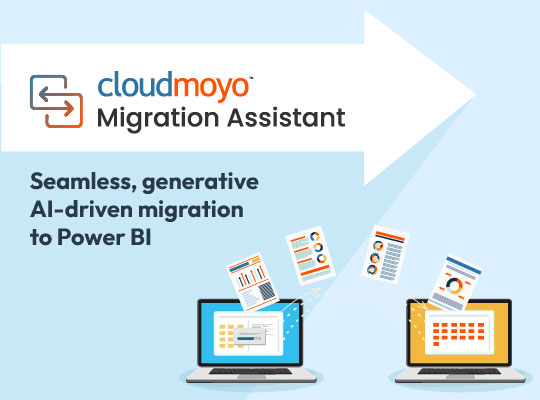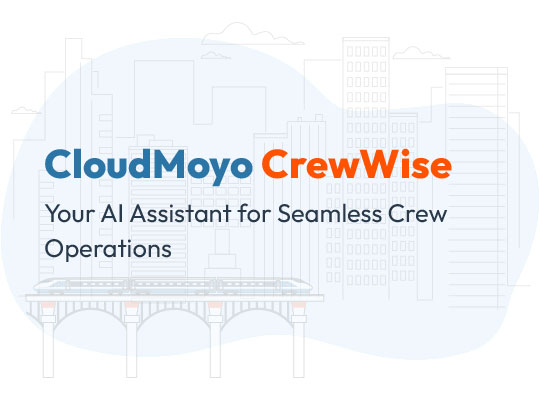Your business data is extremely POWERFUL, only if you are able to use it properly– to generate valuable and actionable insights. However, it is also imperative to organize and analyze it well. A recent report says, less than 0.5% of the business data is actually stored and analyzed in a right way. As an impact, enterprises lose over $600 billion a year.
Today, the power of computing and cloud storage of business data has lifted up the demand for a data warehousing solution by businesses of all sizes. It is no more a large capital expenditure; indeed, it has become a one-time investment on the implementation of data warehousing system and can be deployed in no time. This allows any business to access their structured data sources and thus, collect, query and discover insights from it. Microsoft has introduced Azure SQL Data Warehouse that has come as a permanent and effective product in the data platform ecosystem.
Microsoft’s Azure SQL Data Warehouse is a highly elastic and scalable cloud service. It is compatible with several other Azure offerings, for instance, Data Factory and Machine Learning and with various SQL Server tools and Microsoft products. Azure’s SQL based Data warehouse has the capability to process huge amount of data through parallel processing. Being a distributed database management system, it has overcome most of the shortcomings of traditional data warehousing systems.
Before handling the logic involved in data queries, Azure SQL Data Warehouse spreads data across multiple shared storage and processing units. This makes it suitable for the batch loading, transformation, and serving data in bulk. As an integrated Azure feature, it has the same scalability and consistency just like other Azure services like high-performance computing.
The traditional data warehouses have two or more identical processors and consist of Symmetric Multiprocessing (SMP) machines. They have complete access to all I/O devices as these are connected to a single shared memory. A single Operating System controls and treats them equally. With growing business demand in the recent years, the need for high scalability has arisen.
How Azure Data Warehousing overcomes these drawbacks
Azure SQL data warehouse caters all demands through shared nothing architecture. The feature of data storage in multiple location enables to process large volumes of parallel data. If you are new to Azure data warehouse and want to understand it completely, you can take Azure training from experts. You will get to know about virtual networks, azure machines and more during your training.
Features of Azure Data Warehouse
- It is a combination of SQL Server relational database and Azure cloud scale-out capabilities;
- It keeps computing separated from storage;
- It can scale up, scale down, pause and resume computations;
- Azure is an integrated platform;
- It includes the use of tools and T-SQL (SQL server transact).
From legal to business security requirements, it shows complete compliance.
Benefits of Azure Data Warehouse
- Elasticity: Azure data warehouse possesses a great elasticity due to the separation of computing and storage components. Computing can be scaled independently. Even if the query is running, it allows addition and elimination of resources.
- Security-oriented: Azure SQL has various security components (row-level security, data masking, encryption, auditing, etc.). Considering the cyber threats to cloud data security, components of Azure data warehouse are secure enough to keep your data safe.
- V12 portability: Now, you can easily upgrade from SQL Server to Azure SQL and vice-versa with the tools that Microsoft provides.
- High scalability: Scalability is high in Azure. Azure data warehouse scales up and down quickly according to the requirements.
- Polybase: Users can query across non-relational sources with through Polybase.
Different components of Azure Data Warehousing and their functions
- Control node: All connections and applications communicate with the front end of the system–Control node. From the data movement to computations, the control node coordinates everything required for running parallel queries. To do this, all individual queries are transformed to run in parallel on various Compute nodes.
- Compute node: As the compute nodes receive the query, it is further stored and processed. Even the parallel processing of queries takes place with multiple compute nodes. The results are passed back to the control node as soon as the processing completes. Then the results are collected, and the final result is returned.
- Storage: Azure Blob storage can store large amounts of unstructured data. Compute nodes read and write directly from Blob storage to interact with data. Azure data storage is expanding transparently. The storage is resistant to flaws. It provides strong backup and restores data in no time.
- DMS: Windows provides the Data Movement Service, and it runs alongside SQL databases on all nodes. This moves the data between nodes. It forms the core part of the whole process as it has an important role to play in data movement for parallel processing.
Azure Data Warehouse structure and functions
- Being a distributed database system, it is capable of shared nothing architecture.
- The data is distributed throughout multiple shared, storage and processing units.
- Data storage in Azure data warehouse is a premium locally redundant storage layer.
- Compute nodes on top of this layer execute queries.
- As the control node is capable of receiving multiple requests, they are optimized for distribution to allocate to various compute nodes to work parallel.
When you need massively parallel processing (MPP), Azure SQL Data Warehouse is the ultimate solution. Unlike the on-premises equivalent, Azure SQL Data Warehouse solutions is easily accessible to anyone with a workload using the familiar T-SQL language.
If you are looking to harness this wonderful data warehousing solution for your business, a Microsoft Partner like CloudMoyo can help. From evaluation, requirements and assessment phase, to data warehouse platform selection, architecture, integration, data management and further support, CloudMoyo’s brings to the table expertise, flexibility along with long term commitment for excellence. Get started today with our 5-day Azure assessment workshop for your organization!



















